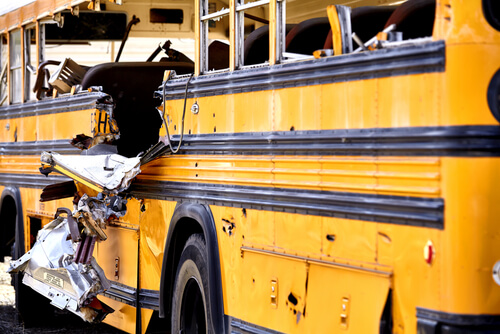The rise of rideshare services like Uber and Lyft has transformed urban transportation, particularly in bustling cities like Atlanta. However, with increased rideshare usage comes a corresponding rise in rideshare-related accidents. When these incidents occur, the legal landscape becomes significantly more complex than traditional car accidents, often requiring specialized legal expertise to navigate the intricate web of insurance policies and liability issues.
Table of Contents
The Unique Complexity of Rideshare Accidents
Rideshare accidents differ fundamentally from conventional vehicle collisions due to the multiple parties potentially involved. Unlike standard car accidents where typically two drivers and their insurance companies are the primary stakeholders, rideshare incidents can involve the rideshare driver, the rideshare company, other motorists, passengers, and multiple insurance policies operating simultaneously.
The complexity stems from the fact that rideshare drivers exist in a gray area between personal vehicle use and commercial transportation. Depending on the driver’s status at the time of the accident—whether they were offline, waiting for a ride request, en route to pick up a passenger, or actively transporting someone—different insurance policies may apply, each with varying coverage limits and requirements.
Understanding Rideshare Insurance Coverage Tiers
Rideshare companies operate under a tiered insurance system that determines coverage based on the driver’s activity status. When a driver is offline or using their vehicle for personal purposes, only their personal auto insurance applies. However, personal policies typically exclude coverage for commercial activities, creating potential gaps in protection.
Once a driver activates the rideshare app and becomes available for rides, contingent liability coverage kicks in, though this is often limited and may not cover comprehensive or collision damages to the driver’s vehicle. When a driver accepts a ride request and is either en route to pick up passengers or actively transporting them, the rideshare company’s commercial insurance policy provides the highest level of coverage, typically including substantial liability limits.
This tiered system creates scenarios where determining which insurance policy applies can become contentious, particularly when accidents occur during transition periods between these phases. Insurance companies may attempt to shift responsibility to other policies, leaving accident victims caught in the middle of coverage disputes.
Common Challenges in Rideshare Accident Claims
Victims of rideshare accidents often encounter unique obstacles when seeking compensation. Insurance companies representing different parties may dispute liability, arguing that another party’s policy should cover the damages. This finger-pointing can significantly delay settlements and complicate the claims process.
Additionally, rideshare companies often classify their drivers as independent contractors rather than employees, which can impact how liability is determined and which insurance policies apply. This classification can create additional layers of complexity when establishing fault and seeking appropriate compensation.
Another challenge involves gathering evidence specific to rideshare accidents. Important information such as the driver’s app status, trip details, GPS data, and communication records between the driver and passengers may be crucial for building a strong case, but accessing this information often requires legal intervention.
When Professional Legal Assistance Becomes Essential
While minor rideshare accidents with clear liability and adequate insurance coverage might be resolved without legal representation, many situations warrant consulting a rideshare accident attorney in Atlanta. Complex cases involving serious injuries, disputed liability, or insurance coverage gaps typically require specialized legal expertise to navigate effectively.
Professional legal assistance becomes particularly valuable when dealing with uncooperative insurance companies, when multiple parties are involved, or when the accident results in significant medical expenses or lost wages. Attorneys experienced in rideshare accident cases understand the nuances of these claims and can effectively communicate with multiple insurance companies while protecting their clients’ interests.
Furthermore, rideshare accident cases often involve tight deadlines for filing claims and preserving evidence. Legal professionals can ensure that all necessary documentation is properly collected and submitted within required timeframes, preventing the loss of crucial evidence or the expiration of important legal rights.
Protecting Your Rights and Interests
If you find yourself involved in a rideshare accident, several immediate steps can help protect your interests. First, ensure everyone’s safety and seek medical attention if needed. Document the scene thoroughly, including photographs of vehicle damage, road conditions, and any visible injuries. Obtain contact information from all parties involved, including the rideshare driver’s information and trip details.
Report the accident to law enforcement and ensure an official police report is filed. Contact the rideshare company through their app to report the incident, as this creates an official record within their system. However, be cautious about making detailed statements to insurance representatives without first understanding your rights and the potential implications of your words.
Maintain detailed records of all medical treatment, expenses, lost wages, and other damages resulting from the accident. This documentation will be crucial for any potential claim or legal proceeding.
Key Takeaways
Rideshare accidents present unique legal challenges that distinguish them from traditional vehicle collisions. The complex interplay of multiple insurance policies, the classification of rideshare drivers, and the tiered coverage system create scenarios where professional legal guidance often becomes invaluable. Understanding these complexities and knowing when to seek specialized legal assistance can make the difference between receiving fair compensation and being left to navigate a confusing maze of insurance policies and legal requirements alone. While not every rideshare accident requires legal representation, the stakes are often high enough that consulting with experienced legal professionals can provide clarity and protection when you need it most.









